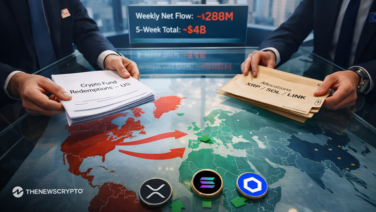- South Korea’s new crypto bill mandates licensing for stablecoin issuers with minimum capital requirements.
- The bill aims to support a Korean won-based stablecoin system, aligning with President Lee Jae-myung’s digital finance strategy.
- The Digital Asset Basic Act proposes broader crypto regulations, including legal definitions, market oversight, and penalties for misconduct.
In a major effort to legalise cryptocurrency regulation, South Korean representative Min Byeong-deok proposed a sweeping new bill on Tuesday that would transform the country’s digital asset ecosystem. The Digital Asset Basic Act bill, as it is called, creates a new licensing system for stablecoin issuers and establishes general rules for the regulation of the digital economy.
The bill is a step ahead of South Korea’s Virtual Asset Investor Protection Act, which came into force in July 2024 and mainly targeted protecting investor interests. The new proposed act goes one step further, setting out a comprehensive framework for digital asset classification, market conduct, and legal obligations of crypto service providers.
A feature of this bill is the licensing requirement for stablecoin issuers. Under this regime, any entity that issues stablecoins shall be required to have more than 500 million Korean won, which is equivalent to about $367,890 in owners’ capital, to obtain a license to do so. This will help ensure the stability of the issuer and prevent the flow of Korean capital abroad to offshore currency-backed stablecoins.
By doing so, it is seen to align with the policy vow made by President Lee Jae-myung that a Korean won-denominated stablecoin market shall be promoted. Min, who was the head of a the committee on digital assets in President Lee’s presidential campaign reiterated that this regulation would be a matter that is important in retaining economic sovereignty amidst growing foreign control over digital finance.
“The Digital Asset Basic Act will become the foundation for Korea to lead in the global digital economy,” Min stated during the press briefing.
Global Inspiration and Regulatory Trends
Min highlighted similar efforts in jurisdictions such as the U.S., EU, Japan, and Hong Kong, which have moved forward with licensing and regulatory clarity for stablecoin issuers. Legislation directly after the Hong Kong law for stablecoins that requires issuers to obtain licenses, the South Korean bill almost follows that exact structure.
In the United States, while the GENIUS Act is gaining strides with President Donald Trump signing on, the stablecoin legislation is also moving ahead. These parallel developments signify a global consensus on the need for structured regulation of the markets that deal with stablecoins and digital assets.
Beyond Stablecoins: Oversight Over Entire Crypto Market
The Digital Asset Basic Act goes further than stablecoin laws. It proposes:
- A clear legal definition of digital assets;
- Rules on issuance, trading, and circulation of cryptocurrencies;
- And the creation of a Digital Asset Committee, a presidential-level body for oversight and strategic planning.
This Act also provides for the enforcement mechanisms against unfair practices of market manipulation and insider trading, hence enhancing transparency and confidence among investors.
On its eventual passage, this legislation will quickly create South Korea-led ASEAs in regulation toward digital assets by securing a balance between innovation, consumer protection, and financial stability.
Highlighted Crypto News Today:
Price Pumps and Volume Soar, Is Solana (SOL) Ready to Smash the Ceiling?








